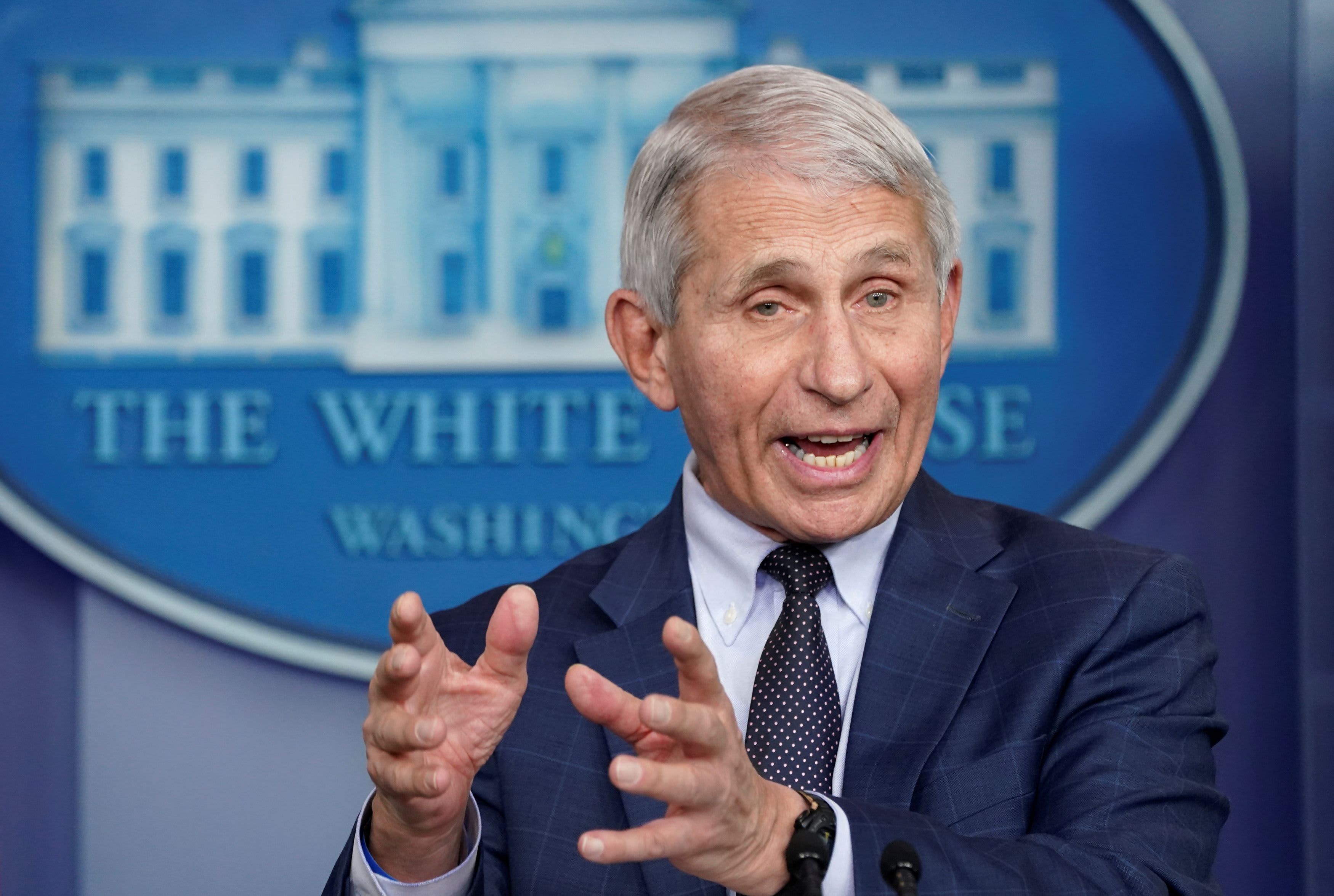Early Life and Education

Anthony Fauci was born on December 24, 1940, in Brooklyn, New York. His parents were Stephen Fauci, a pharmacist, and Eugenia Fauci (née Abys). He had an older sister, Denise. Fauci grew up in a close-knit Italian-American family. He was a bright and curious child, and he developed a passion for science at a young age. He attended Regis High School, a Jesuit college preparatory school in Manhattan, where he excelled in science and math. After graduating from high school, Fauci attended the College of the Holy Cross in Worcester, Massachusetts, where he majored in biology. He then went on to Cornell University Medical College, where he earned his medical degree in 1966.
Fauci’s early influences included his father, who was a role model for him and instilled in him a love of science. Fauci also credits his high school biology teacher, Brother Thomas Aquinas, with inspiring him to pursue a career in medicine.
Career at the National Institutes of Health (NIH): Anthony Fauci

Fauci’s career at the NIH spanned over five decades, where he made significant contributions to shaping research agendas and funding priorities. His leadership was instrumental in addressing major health crises, including the HIV/AIDS epidemic.
As Director of the NIAID, Fauci played a pivotal role in shaping the institute’s research agenda. He prioritized funding for research on infectious diseases, including HIV/AIDS, and ensured that the institute’s resources were directed towards addressing the most pressing health challenges of the time.
Leadership in Addressing the HIV/AIDS Epidemic
Fauci’s leadership was particularly evident during the HIV/AIDS epidemic. He played a crucial role in developing and implementing the federal government’s response to the crisis. Fauci advocated for increased funding for HIV/AIDS research, and he helped to establish the President’s Emergency Plan for AIDS Relief (PEPFAR), which has provided billions of dollars in funding to combat the disease globally.
Fauci’s scientific expertise and his ability to communicate complex medical information to the public made him a trusted voice during the HIV/AIDS epidemic. He helped to raise awareness about the disease and its transmission, and he provided hope to those affected by it.
COVID-19 Pandemic Response

As the COVID-19 pandemic unfolded, Dr. Fauci emerged as a key advisor to the White House, providing scientific guidance and advocating for evidence-based policies. His role was multifaceted, encompassing public messaging, scientific guidance, and policy advocacy.
Public Messaging
Fauci’s public messaging played a crucial role in shaping public understanding of the pandemic. He consistently emphasized the importance of social distancing, mask-wearing, and vaccination, while dispelling misinformation and providing clear and accessible information about the virus and its spread. His ability to communicate complex scientific concepts in a relatable and engaging manner earned him widespread trust and credibility.
Scientific Guidance
As a leading infectious disease expert, Fauci provided invaluable scientific guidance to policymakers throughout the pandemic. He advised on the development of testing protocols, treatment guidelines, and vaccine development. His expertise helped shape the nation’s response to the pandemic, ensuring that decisions were based on the latest scientific evidence.
Policy Advocacy
Fauci was a vocal advocate for evidence-based policies throughout the pandemic. He urged the White House to prioritize public health measures, such as mask mandates and lockdowns, even when they faced political resistance. His advocacy helped ensure that scientific considerations were given due weight in decision-making.
Controversies and Criticisms
Fauci’s handling of the COVID-19 pandemic has not been without its controversies. He has been accused of political bias, scientific missteps, and a lack of transparency. These criticisms have had a significant impact on his reputation and public perception.
Political Bias
Fauci has been accused of being politically biased in his handling of the pandemic. Some critics have alleged that he has downplayed the severity of the virus in order to protect the Trump administration’s political interests. Others have accused him of being too willing to criticize the Trump administration’s response to the pandemic.
Scientific Missteps, Anthony fauci
Fauci has also been criticized for making scientific missteps during the pandemic. Some critics have accused him of being too slow to recommend mask-wearing and social distancing. Others have accused him of being too quick to dismiss the potential benefits of hydroxychloroquine as a treatment for COVID-19.
Lack of Transparency
Fauci has also been criticized for a lack of transparency during the pandemic. Some critics have accused him of being too slow to release data and information about the virus. Others have accused him of being too willing to change his recommendations without providing a clear explanation.
Legacy and Impact
Anthony Fauci’s profound impact on public health and medical research has left an enduring legacy. His unwavering commitment to scientific inquiry and public service has advanced medical knowledge and improved global health outcomes.
As Director of the NIAID, Fauci spearheaded groundbreaking research on infectious diseases, including HIV/AIDS, Ebola, and COVID-19. His contributions to understanding these diseases and developing effective treatments have saved countless lives.
Fauci’s dedication to scientific integrity and evidence-based decision-making has fostered trust in the scientific community. His transparent and accessible communication style has informed the public and policymakers during critical health crises.
Fauci’s unwavering advocacy for evidence-based policies has been instrumental in shaping public health measures during the COVID-19 pandemic. His insistence on masks, social distancing, and vaccinations has undoubtedly mitigated the spread of the virus and saved lives.
Despite the challenges and controversies he has faced, Fauci’s legacy as a tireless advocate for public health and medical research will endure. His dedication to science and service has made him a respected and influential figure, leaving a lasting mark on the global fight against infectious diseases.